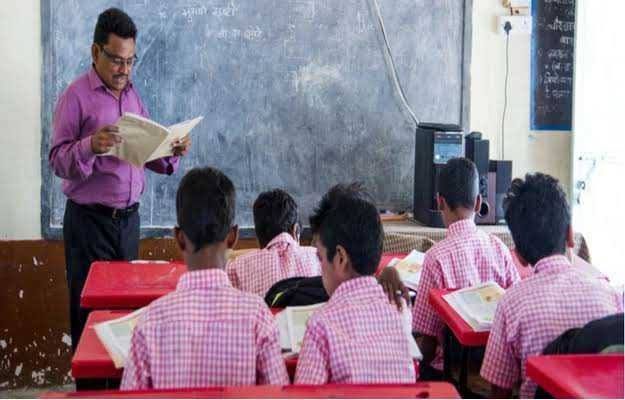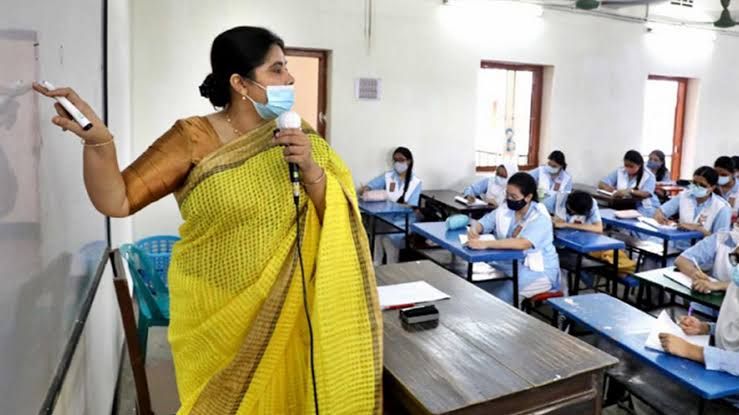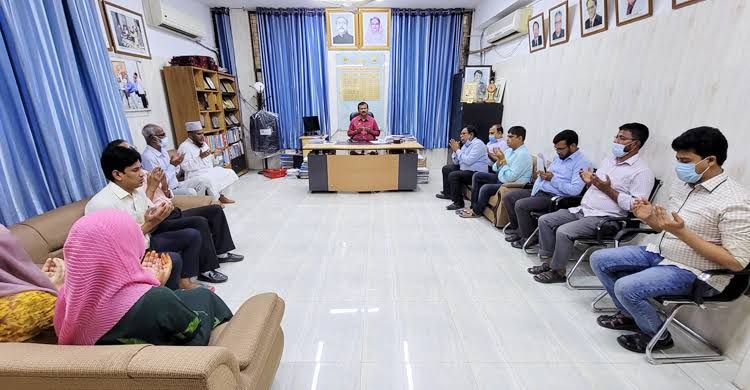
Bismillaher Rahmanir Rahim.
Assalamu Alaikum Wa Rahmatullahi Wa Barakatuhu
Dear Companions Today I want to share with you some words about the evils of killing foetuses.Welcom to this post and congratulations to all.
Discrimination against private teachers is a persistent issue in many educational systems around the world. These educators often face unequal treatment compared to their counterparts in public institutions, including lower wages, lack of job security, limited benefits, and restricted opportunities for professional growth. The current government's acknowledgment of the problem and its intention to address it is a step in the right direction. Solving this issue requires a multi-faceted approach, focusing on policy reforms, awareness, and a collaborative effort between the public and private sectors.

source
Understanding the Problem
Private teachers often work in institutions that are not as heavily regulated as public schools. This lack of regulation can lead to disparities in pay, benefits, and working conditions. Unlike public school teachers, who are often protected by government regulations, private teachers may have to negotiate their contracts individually, resulting in significant differences in their compensation and job security. Additionally, private teachers may not have access to the same level of professional development opportunities, which can hinder their career progression.
The discrimination against private teachers is also a matter of perception. In many societies, there is a belief that private school teachers are less qualified or less dedicated than their public school counterparts. This stigma can affect the way private teachers are treated by their employers, students, parents, and even their peers in the educational community.

source
Steps to Address the Issue
Policy Reforms and Legislation
One of the most effective ways to address discrimination against private teachers is through policy reforms and the introduction of new legislation. Governments should establish clear guidelines that ensure fair treatment for all teachers, regardless of whether they work in public or private institutions. These guidelines should include minimum wage standards, job security provisions, and regulations regarding working conditions. By setting a legal framework that private institutions must follow, the government can help eliminate the disparities between public and private educators.
Legislation should also focus on providing private teachers with access to benefits such as health insurance, retirement plans, and paid leave. These benefits are often standard for public school teachers but may be lacking in private institutions. Ensuring that all teachers have access to these benefits would be a significant step toward leveling the playing field.

source
Equal Opportunities for Professional Development
Professional development is crucial for teachers to enhance their skills and stay updated with the latest educational practices. The government can play a role in creating initiatives that offer equal opportunities for professional growth to both public and private teachers. This could include funding for training programs, workshops, and courses that are accessible to all educators, regardless of their place of employment.
Creating a centralized platform for professional development can help bridge the gap between public and private teachers. By providing resources that are available to everyone, the government can ensure that private teachers have the same opportunities to grow and advance in their careers as their public counterparts.

source
Raising Awareness and Changing Perceptions
One of the biggest challenges in addressing discrimination against private teachers is changing societal perceptions. Many people undervalue the work of private school teachers, believing they are less skilled or dedicated than those in public schools. To combat this stigma, awareness campaigns can be launched to highlight the contributions of private teachers to the education sector.
The government, along with private institutions, can work on initiatives that recognize and reward the achievements of private teachers. This recognition can take the form of awards, public acknowledgment, and showcasing success stories of private educators who have made significant impacts. By raising awareness about the valuable role that private teachers play in shaping future generations, the negative perceptions can gradually be changed.

source
Encouraging Collaboration Between Public and Private Sectors
Collaboration between the public and private education sectors can help foster a sense of unity and mutual respect among teachers. The government can facilitate partnerships between public schools and private institutions to encourage the sharing of resources, knowledge, and best practices. Joint training sessions, conferences, and educational projects can create opportunities for teachers from both sectors to work together, breaking down barriers and reducing discrimination.
Encouraging such collaborations will not only benefit teachers but also improve the overall quality of education. When educators from different backgrounds come together to share their experiences and expertise, they can develop more effective teaching strategies that benefit students across all types of schools.
Strengthening Teacher Unions and Associations
Teacher unions and associations play a crucial role in advocating for the rights of educators. Strengthening these organizations for private teachers can provide them with a collective voice to address their grievances and fight for their rights. Unions can help negotiate better working conditions, fair pay, and benefits for private teachers, similar to what is often done for public school educators.
Governments can support these unions by providing legal backing and ensuring that private teachers have the right to form or join unions without fear of retaliation. A strong union presence can empower private teachers to stand up against discrimination and demand the respect and recognition they deserve.
Monitoring and Enforcement Mechanisms
To ensure that private institutions comply with regulations and guidelines aimed at eliminating discrimination, there must be effective monitoring and enforcement mechanisms in place. The government should establish a body responsible for overseeing the implementation of these policies in private schools. This body should have the authority to conduct regular audits, investigate complaints, and take corrective action when necessary.
Penalties for non-compliance should be clearly defined to deter private institutions from engaging in discriminatory practices. By holding private schools accountable, the government can create a fairer and more just environment for all educators.
The Role of Private Institutions
While the government plays a significant role in addressing discrimination, private institutions also have a responsibility to treat their teachers fairly. School administrators and management should work towards creating a positive work environment that values the contributions of all educators. Implementing transparent hiring practices, providing competitive salaries, and offering professional development opportunities are essential steps that private institutions can take to ensure that their teachers are respected and valued.
Private schools should also focus on fostering a culture of inclusion and equality among their staff. Encouraging open communication and addressing any instances of discrimination promptly can help build a supportive community for all teachers.
source
Discrimination against private teachers is a complex issue that requires a comprehensive approach to resolve. By implementing policy reforms, raising awareness, encouraging collaboration between sectors, and strengthening teacher unions, the government can take significant steps toward eliminating this discrimination. However, lasting change will only come when private institutions also take responsibility for treating their teachers with the respect and recognition they deserve.
The journey to equality in education is ongoing, and while the government's efforts are crucial, it will ultimately require a collective effort from all stakeholders to ensure that private teachers receive the same rights, opportunities, and respect as their public counterparts.